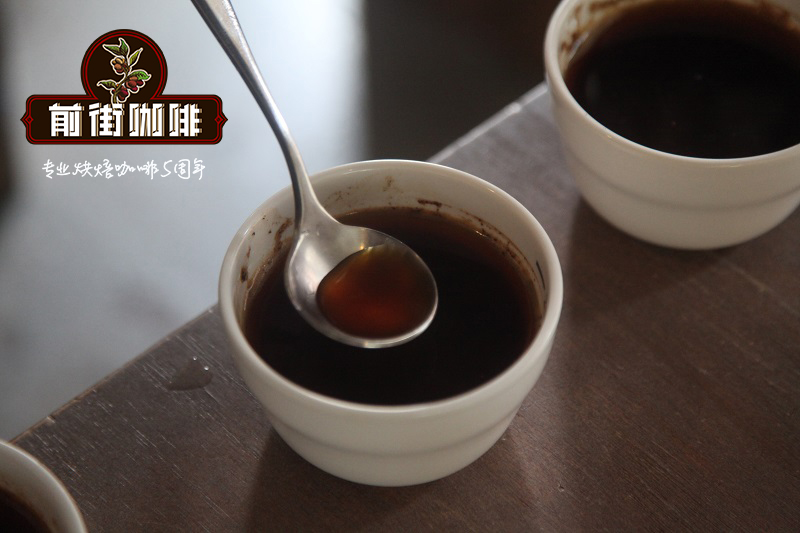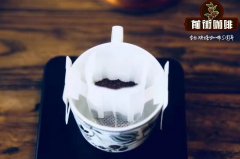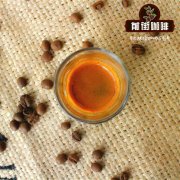Would you like water or coffee first to make coffee? The uncle of the popular coffee staff teaches you how to use the coffee maker.

Professional coffee knowledge exchange more coffee bean information please follow the coffee workshop (Wechat official account cafe_style)
The way of brewing coffee is similar to the tea ceremony, paying attention to techniques and utensils, as well as the cooking and choice of beans.
With the meticulous pursuit of urban people's way of life, hand-brewed coffee with both craftsmanship, ingenuity and complex flavor has entered the daily life of many people. As one of the styles of learning to make coffee, Japanese brewing is the advanced pursuit of many coffee lovers. On October 22nd of this month, the coffee staff class launched in Shenzhen invited you to experience what is meant by Japanese brewing. How to make a good cup of Japanese brewing coffee.
What is the difference between Japanese brewing and daily boutique brewing?
The common boutique brewing takes medium baking as the mainstream, emphasizing flavor, refreshing taste, showing flower aroma and fruit acid. The tasting analogy of fine coffee is red wine, which pays attention to the traceability of variety and origin, and the defect rate is very low, and pays more attention to the "regional flavor" of coffee beans, that is, different soil, variety, climate and soil and water make different coffee flavor.
The typical characteristics of Japanese brewing are represented by flannel drip brewing and siphon brewing, with a mellow taste, strong aroma and a sweet and bitter finish. Japanese brewing is run in the heart of craftsmen, handed down from generation to generation and continuous excellence, with different combinations of beans as the exclusive formula to attract coffee makers from all over the world for pilgrimage.
Japanese style brewing in Japan
Tea Pavilion Feadang
Near Shibuya subway station is a Showa-style Toyo cafe. As a representative of the old tea shop in Tokyo, the old master has exquisite Japanese brewing skills. The coffee made from traditional flannel is full and balanced, with exquisite desserts and exquisite old porcelain, as if back to the old dream.
% Arabica
As a world-famous coffee shop, loved by magazines and travelers, apart from design and attitude, we can also find the concrete embodiment of Japanese aesthetics in the lifestyle of coffee. Japanese flower champion Junichi Yamaguchi, in addition to the stunning espresso, also uses the traditional flannel Japanese brewing technique to provide excellent coffee for drinkers.
From good beans to a good cup of coffee
Bring Japanese style brewing to daily life.
Home of Life in this issue | Bunco
International coffee quality appraiser certified by SCAA and CQI
"to enjoy a cup of coffee, we should not only feel what we see, but also appreciate what we can't see.
Please let the coffee express its flavor by itself. "
When he walked into Bean2cup, a coffee studio founded by Bunco, he and his students were completing a cup test of new beans. From the baking, selection, and finished products of beans, there is no great detail. As a barista, his strict selection of each bean continues to the exquisite and extreme taste of a cup of coffee, which affects many people's concept of coffee.
Bunco is a native of Hong Kong. Before becoming a professional barista, he worked as a registered financial planner for more than 30 years and worked in Europe for 6 years. His love of coffee has taken him to cafes and coffee fields all over the world. Bunco's first memory of coffee began in Hong Kong in the 1980s, from office instant coffee to Hong Kong-style coffee and mandarin duck coffee in Hong Kong street cafes. It was not until he frequently traveled to and from Europe and the United States on work that he stumbled upon another kind of coffee scenery.
After working in Europe, when he tasted the local coffee, he found that the coffee sold in the store stated the variety and region, and different varieties of coffee beans had different tastes, and even the same variety would release different flavors when tasting. This made him very interested in the professional field of coffee.
Later, Bunco quit his well-paid job and founded Bean2cup, from beans to a cup of coffee, focusing on in-depth research in the field of coffee.
Bean2Cup, a cafe open to the public, hides in the center of an office building in Futian, Shenzhen, without the standard fresh design of an online celebrity cafe or a good-looking young barista, but foreign guests often come from afar to taste its hand-made coffee. The simple coffee rack is filled with all kinds of handmade coffee utensils. In addition to the popular Bean2Cup selected beans, you can also drink Maru Shan Coffee beans from the world's top cafe. Japanese-style brewing and KONO-style hand-brewing bubbles are also minority and unique in-store features.
It is the custom of traditional Japanese cafes to make a pot of flannel hand-flushed with a small bone china coffee cup.
Bunco described coffee tasting as having something in common with cuisine: "some people like medium well when eating steak because the meat of well-done beef will harden." When coffee is roasted, there is also a special period of time, during which the flavor, oil, and mellow smell of coffee beans have just been released, showing signs of maturity. The grasp of this balance, whether sour, sweet, bitter and astringent, can reach a golden ratio, which is the best state of a cup of coffee that can be told. "
Learn to make a serious cup of coffee. ☕ this month, pine cone life will bring you a minority and unique Japanese brewing course to learn the culture and skills of Japanese brewing.
▲
Sharing instructor
Bunco Wong
In this experience, Bunco will personally teach the skills and culture of Japanese hand-made coffee, using different tools, including V60 hand brewing, ice extract, siphon and flannel drip brewing, to present the varied flavor and taste of coffee in different ways with the combination of new kidney bean Yega Ficcher and Japanese-style mixed beans.
Important Notice :
前街咖啡 FrontStreet Coffee has moved to new addredd:
FrontStreet Coffee Address: 315,Donghua East Road,GuangZhou
Tel:020 38364473
- Prev

How to drink hanging-ear coffee? how to make hanging-ear coffee by hand?
Professional Coffee knowledge Exchange more information on coffee beans Please follow the coffee workshop (Wechat official account cafe_style) "making coffee is a simple art, but it still involves many aspects: practice, accuracy and the pure fun of making a good heart. This is an expanding universe, full of splendor, and there will always be things you want to improve. "Coffee is amazing.
- Next

How long does it take for a Starbucks coffee maker to learn how to make coffee in Wuyi?
Professional coffee knowledge exchange More coffee bean information Please pay attention to Coffee Workshop (Weixin Official Accounts cafe_style) Starbucks 'trend in Hong Kong over the past year is really a little surprising. In addition to finally keeping up with the quality of surrounding products in Japan and South Korea, there is also Starbucks Reserve coffee shop promoted vigorously. Different from the usual shops, Reserve provides a more refined coffee.
Related
- Beginners will see the "Coffee pull flower" guide!
- What is the difference between ice blog purified milk and ordinary milk coffee?
- Why is the Philippines the largest producer of crops in Liberia?
- For coffee extraction, should the fine powder be retained?
- How does extracted espresso fill pressed powder? How much strength does it take to press the powder?
- How to make jasmine cold extract coffee? Is the jasmine + latte good?
- Will this little toy really make the coffee taste better? How does Lily Drip affect coffee extraction?
- Will the action of slapping the filter cup also affect coffee extraction?
- What's the difference between powder-to-water ratio and powder-to-liquid ratio?
- What is the Ethiopian local species? What does it have to do with Heirloom native species?

